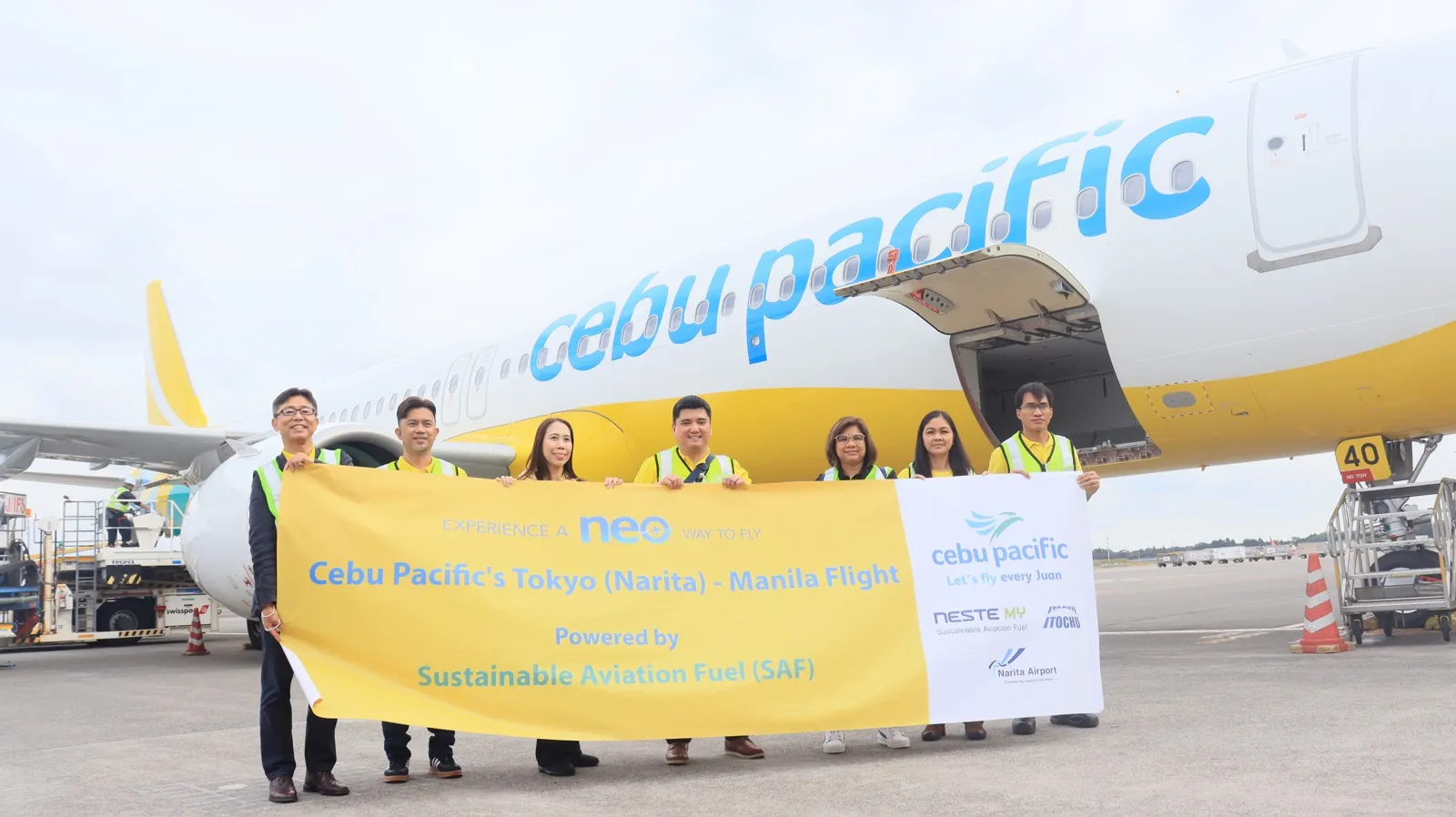
Cebu Pacific leads the way for Sustainable Aviation Fuel
Oct 26, 2023

Cebu Pacific is at the forefront of promoting Sustainable Aviation Fuel (SAF) within the aviation industry. Committed to reducing its carbon footprint, the airline actively explores partnerships and initiatives to incorporate SAF into its operations. By investing in innovative technologies and collaborating with various stakeholders, Cebu Pacific aims to enhance environmental sustainability while maintaining operational efficiency. Their efforts reflect a proactive approach to addressing climate change challenges, positioning the airline as a leader in the pursuit of greener aviation solutions. This commitment not only benefits the environment but also sets a precedent for other airlines to follow in adopting sustainable practices.
Cebu Pacific has positioned itself as a leader in the adoption of Sustainable Aviation Fuel (SAF), setting a benchmark for other airlines in the region. This commitment not only reflects the airline's dedication to environmental stewardship but also aligns with the global push towards sustainable travel. With the aviation industry being a significant contributor to carbon emissions, Cebu Pacific's initiative is a crucial step towards mitigating climate change impacts.
Understanding Sustainable Aviation Fuel
Sustainable Aviation Fuel is derived from renewable resources, offering a cleaner alternative to traditional jet fuels. By reducing greenhouse gas emissions by up to 80% over its lifecycle, SAF plays a vital role in the aviation sector's efforts to achieve net-zero emissions by 2050. Cebu Pacific's proactive approach to integrating SAF into its operations highlights the airline's commitment to sustainability.
Cebu Pacific's Initiatives
The airline has taken significant strides to incorporate SAF into its flight operations. It has actively participated in various partnerships and collaborations aimed at increasing the availability of SAF, not just for its own use but for the entire aviation industry in the Philippines and Southeast Asia.
Key Benefits of Sustainable Aviation Fuel
Utilizing SAF offers numerous benefits, including:
- Reduced Carbon Footprint: SAF significantly lowers carbon emissions compared to conventional jet fuels.
- Energy Security: By investing in alternative fuels, airlines can reduce their dependence on fossil fuels.
- Support for Local Economies: SAF can be produced from local feedstocks, promoting regional economic growth.
Cebu Pacific's Partnership with SAF Producers
In its quest to lead the way in sustainable aviation practices, Cebu Pacific has formed strategic partnerships with various SAF producers. This collaboration ensures a steady supply of SAF, allowing the airline to gradually transition its fleet towards more sustainable operations. The airline's commitment is further demonstrated through its participation in global forums and initiatives aimed at promoting SAF usage.
Investment in Research and Development
Cebu Pacific recognizes that innovation is key to the successful implementation of Sustainable Aviation Fuel. The airline has invested in research and development initiatives that explore new technologies and feedstocks for SAF production. This forward-thinking approach not only enhances the airline's operational sustainability but also contributes to the overall advancement of the aviation sector.
Chart: Cebu Pacific's SAF Integration Timeline
The following chart outlines Cebu Pacific's timeline for integrating Sustainable Aviation Fuel into its operations:
| Year | Milestone |
|---|---|
| 2021 | Announced commitment to incorporate SAF into operations. |
| 2022 | Formed partnerships with SAF producers for pilot projects. |
| 2023 | Conducted successful test flights using SAF. |
| 2024 | Plans for regular SAF usage in commercial flights. |
Challenges in Adopting Sustainable Aviation Fuel
While Cebu Pacific is making significant strides in adopting SAF, the journey is not without challenges. The primary hurdles include:
- High Production Costs: Currently, SAF is more expensive to produce compared to traditional jet fuels.
- Limited Availability: The supply chain for SAF is still developing, making it less accessible for widespread use.
- Regulatory Barriers: Navigating through complex regulatory frameworks can slow down the adoption process.
Future Outlook for Cebu Pacific and SAF
Looking ahead, Cebu Pacific is optimistic about the future of Sustainable Aviation Fuel. With ongoing collaborations and investments in innovation, the airline aims to significantly increase the percentage of SAF used in its fuel mix. This commitment not only enhances the airline's sustainability credentials but also sets a positive example for the entire aviation industry.
Conclusion
Cebu Pacific's leadership in the adoption of Sustainable Aviation Fuel represents a pivotal movement towards a more sustainable future for aviation. By prioritizing SAF integration, the airline demonstrates its commitment to reducing carbon emissions and promoting environmentally friendly practices. As more airlines follow suit, the potential for a greener aviation industry becomes increasingly achievable, paving the way for sustainable travel options for future generations.
Related Articles

Explore Thailand: The Best Islands to Visit for Paradise, Adventure, and Relaxation

The Ultimate Guide to the Best Islands in Thailand for Your Next Getaway

Do babies need passports? How to get a passport for a newborn

How to get a U.S. passport fast: here’s how to expedite the process

What is Mobile Passport Control: 5 reasons why you should use it

SENTRI vs. Global Entry: A detailed guide

Do you need a passport to go to the Bahamas? Let’s find out

Do you need a passport to go to Mexico? A detailed guide

Do you need a passport to go to Canada? We got the answer

Do You Need a Passport for a Cruise: An Essential Travel Guide

Booster Seat Requirements: All the Rules to Follow in Your Rental Car

What Are the World’s Most Powerful Passports, and How Does Yours Rank?

How to Take a Passport Photo at Home: A Helpful Guide

You've got to have heart! Southwest's new livery

Your opinion: Should water be free on low cost carriers?

Young women bolder than guys as solo travellers
